NICE! NICE! and NICE! again!
and wow, vampires and...i do not know what is the other thingy?
You may call them "serpentspawn" for now.
They look entirely human though.
But I have plans for that plot line in the future so keep your eyes peeled.
In other news, the next update is here.
“Let this be known to all who walk this hallowed ground;
Let none be turned away from these gates,
Let none be judged for past transgressions,
All men are all in her graces, for her love is unconditional,
In the name of our Goddess, most benevolent and pure,
Our Lady of Compassion,
Guanyin,”
~
Plaque inscription at the entrance of the Temple of Our Lady of Compassion.
Over the past several days, Morita had a lot of time to reflect on the events of that fateful day.
He didn’t quite understand himself why he took such great pains to avoid Mohammed or why he felt something tugging on his conscience.
It wasn’t until another week passed on the march that Morita realized it.
The guilt of his wrongdoings had all caught up to him.
Coming from a family of highly traditional background, it was incredibly difficult for him to rethink the values of the old prejudices instilled into him since childhood. A Burakumin man had saved his life even after exchanging hostile remarks and holding each other in contempt. Rather than being dirty & criminal like Morita had previously stereotyped all Burakumin as, Shao’s final act in life proved that he was selfless and heroic. He had it in his mind to apologize to Mohammed, something, anything, just for him to show that he was repentant. Voices in the poor soldier’s head demanded that he atoned for his hubris. Although he attributed these conditions to being haunted by Shao’s
guǐ, Morita was actually suffering from a combination of survivor’s guilt, post-traumatic stress disorder and superstitious belief.
It wasn’t easy to buck something that was so systematically deep-set in his mindset though. Thoughts in his mind lingered about what his family and friends back in Osaka might think if they found out he had a budding respect for Burakumin or even the fact that one saved his life. The weeks had gone by though and the Yamato soldier had finally worked the nerve to overcome old habits, if only for the sake of trying to clear his conscience.
“Hey, Ma,” he said solemnly as he approached the campfire and the bubbling crockpot. “Can I talk to you? In private?” Mohammed, who was sharing a meal with Choi & Yang at the time took a second to think it over, then looked over at his comrades. The expressions on their faces indicated that perhaps it would be best. “Sure,” Mohammed said plainly. The two of them left to talk by the corner of the camp, which was situated near what was once a fruitful orchard.
“What do you want to talk about?” Mohammed asked. He was no longer looking as sullen as he had been weeks before but the soldier had retained some of his gauntness. A slight fuzz was growing on his chin and a prominent pair of sideburns was visible as well; Mohammed was simply not caring enough about certain things anymore, personal maintenance being one of them. When the Arab soldier did not hear a response, he turned to look at Morita, only to find his comrade prostrate before him on the ground.
“He…sacrificed his own life to save mine and…I didn’t honor that gesture,” he spoke humbly as he remained bowed on the ground before his comrade.
“Please forgive me, Ma,” he pleaded.
“Don’t be sorry to me, Morita,” Mohammed said as he walked past his squadmate with a hardened face, “It’s Shao who needs your apology,”
Morita arose from his prostate position on the ground and his gaze followed Mohammed’s silhouette until it gradually faded from view.
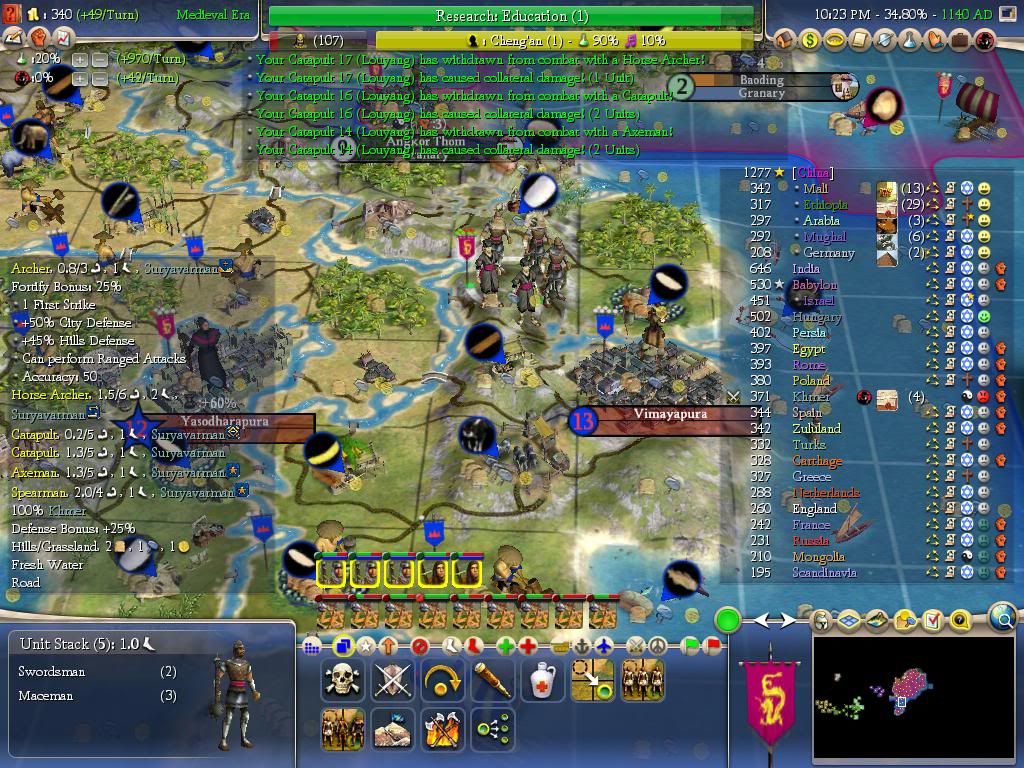
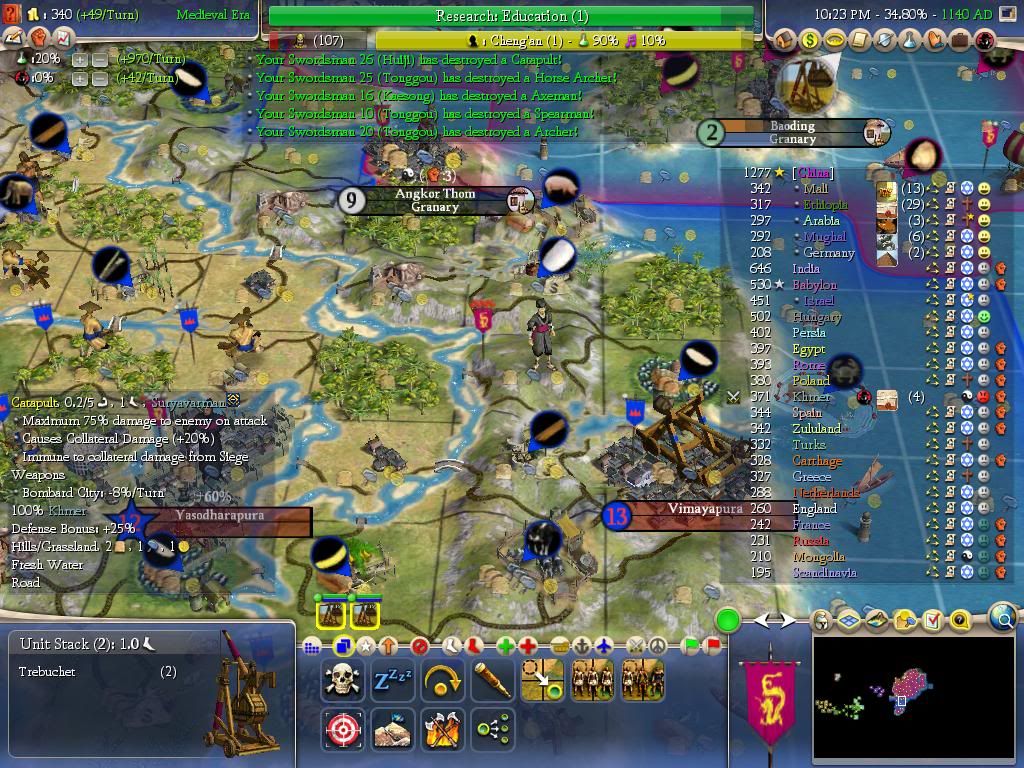
The Southern Pacification Army continued to march onto the Kampuchean capital, unopposed by any effective resistance from their adversaries. Ang Rithisak, the Kampuchean God-King had already locked himself behind the vigilant walls of Yashodapura, anxious to meet the Chinese invaders with what remained of his once-proud army. Surviving Kampuchean Army regiments had already been recalled to the capital for the God-King’s last stand. The countryside was a nexus of pure chaos. Roving banditry preyed upon stragglers and refugees as entry to most major cities by this time had been effectively denied. Most of the bandits were former fishermen from the north who had no choice but to resort to organized crime because of the Mekong algal blooms that destroyed their livelihoods and poisoned their communities. Deserters from both the Chinese & Kampuchean Armies comprised the rest of the banditry that plagued the land.
A woman kneeled at the side of the paved road which had fallen into disrepair as the Army marched on, paying her no heed. She was cradling the body of a dead child in her arms, weeping silently. A number of looters and displaced refugees were idling around, at first wary at the presence of the Chinese military, but gradually returning to looting and wandering as it was apparent that the Army did not have the time or inclination to go after unarmed civilians. Hundreds of wrecked water-buffalo carts and animal carcasses littered the roadside as the Chinese marched onward. The sense of despair that permeated the Kampuchean air was overwhelming.
Each member of the squadron had to come to grips with their own personal struggles as the convoy moved ever closer towards the site of the final battle.
Captain Yue pondered on how it came to be that the morale of his squadron had dipped so low.
Choi’s fingers trembled as he grasped the handle of his repeating crossbow in anticipation for the grand battle to come.
Yang continued to worry about his cousin and wondered if things could ever be the same.
Morita still felt guilty about Shao’s death and thirsted for any chance of redemption.
Han couldn’t shake the nightmares as the Army neared ever closer to Yashodapura.
Sorrows and lamentations from a long-dead past were now haunting him in full force as the city of his origin came closer into view.
Mohammed however, had strangely found a kind of peace.
A familiar feeling from the first time he had killed a man overtook him as he inspected his blade.
There was only one thing he knew now; he had to stay alive.
The only difference now was that this newfound determination was infused with a reason.
To honor Shao's memory and do right by the generations of the future.
He was determined to make a difference.
The city now laid on the horizon as the convoy made it up and over the hills.
The attack would probably commence on the midnight of the day after if all went according to plan.
There was the still the possibility of a Kampuchean sally from the city that could wreck the Chinese siege plans though.
Trenches were dug all night in anticipation of the possibility; if the Southern Pacification Army had to, they would wait another day before commencing the siege.
Still, the overwhelming sense of anxiety still lingered amongst the rank and file to such a disturbing degree that morale was starting to become affected.
The air had just become much thicker.
Improving standards in education was the primary catalyst behind the rise and dominance of the Nao Caste in the centuries to come. While its effects were not visibly pronounced at the time, most historians generally agree that in this point and time, the rapid development of schools of higher education across the Empire was a key contributing factor in the improvement of the standard of living within the Empire and in the incredible technological hurdles overcome by Chinese academic circles following the conclusion of the Sino-Kampuchean War.
“Where is my court?!” the God-King thundered. There was no one now. The guards and courtiers were all gone, either manning the walls or having already fled the country. Ang Rithisak’s noble coalition had scattered and retreated back into their own fiefs and holdings, desperate to cling onto their last remaining possessions to the death. The situation in Yasodhapura was not any better. Supplies from both the West and the colony on the Philippines had been completely cut off with the Tortoise Armada’s naval blockade. In the city itself, rioting occurred daily in the streets despite the large military presence; the soldiers were simply too occupied with the impeding Chinese threat.
Somewhere deep in the recesses of his mind, was a howling segment of his psyche, berating himself for provoking the rage of the Xia Emperor. It screamed at him and echoed within the halls of his mind in punishment for his hubris in stark contrast to the physical setting of his empty court. When he could take the internal struggle no longer, he left the scene of his throne and court in search of his personal sanctuary.
He retired to his chamber only to find her standing outside of the window, about to plummet into the garden below.
With alarming alacrity, he snatched her from the window sill and threw her at the floor all while striking down at her with unbridled fury.
“Did you think it would be that easy?!” he snarled at the top of his lungs.
He flung her across the room. She was the only thing he had left; the one last thing he still had any real control over,
and the God-King made it clear that no matter what, he would not relinquish it.
Her reddened eyes communicated that she desired death but his eyes told her back that she would have no such sweet release.
No one was allowed to live or die without his consent.
That world of his was very quickly falling apart.
Chinese garrisons repulse a desperate attempt by Kampuchean Army remnants to retake the city of Vimayapura.
In a back-alley of the sprawling urban jungle of Yashodapura, Qin & Suriya finished disposing of a unit of dead Kampuchean soldiers before taking refuge within the darkness of the God-King’s city. Retiring to the back room of a resistance member’s safehouse, the two operatives threw all pretensions aside and locked together in intimate congress. They found solace in each others' arms and soft whispers, loosing inhibited passions that had accrued over the length of their journey together. They did so with the knowledge that they would probably not survive the dawning of the next sun and reached a mutual understanding that with enormous self-sacrifice;
that they had one last chance to allot themselves one last comfort.
Everyone needs to cope and find the means to tap that hidden pool of willpower.
It is both a truth and a constant in the unfolding drama of human conflict.
From this point onwards, everything converges into one singular point.
Hariharalaya falls into Chinese hands. There are only three major continental cities held by the Kampucheans at this stage of the war.





 I'm glad you like it!
I'm glad you like it! 
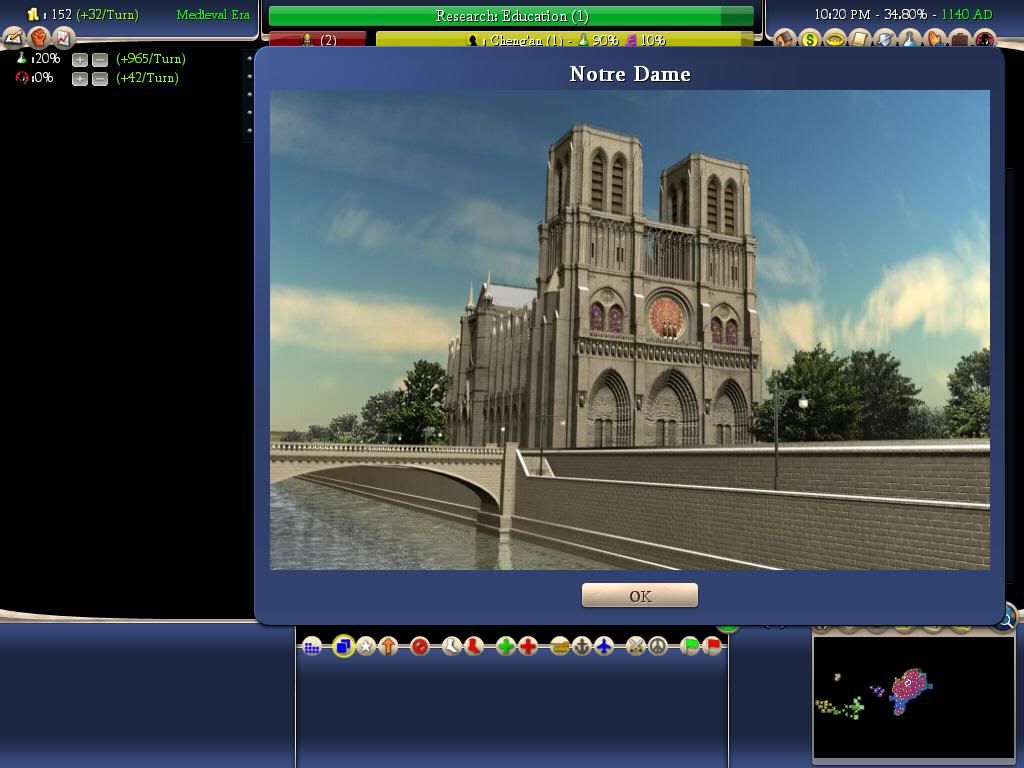
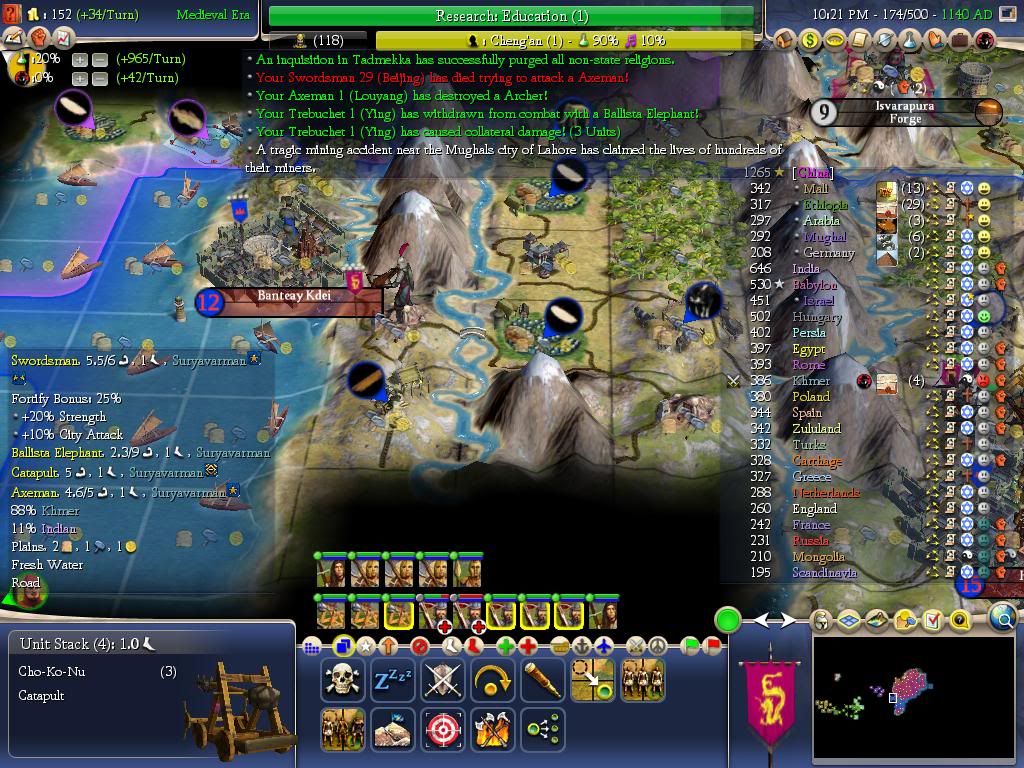
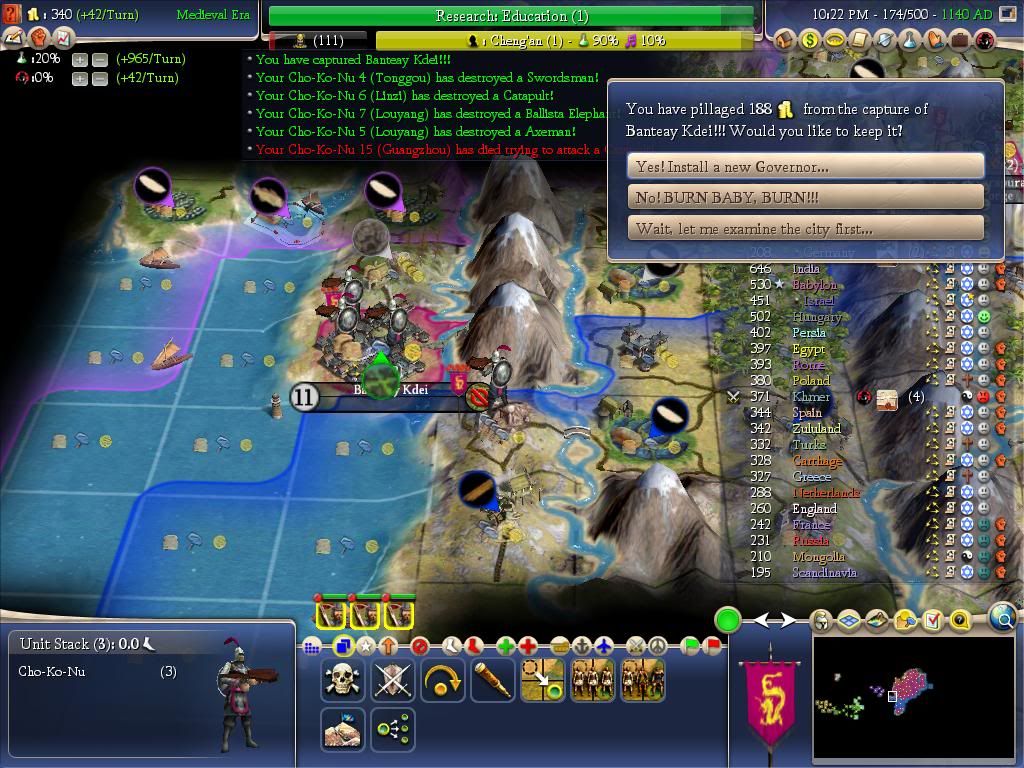


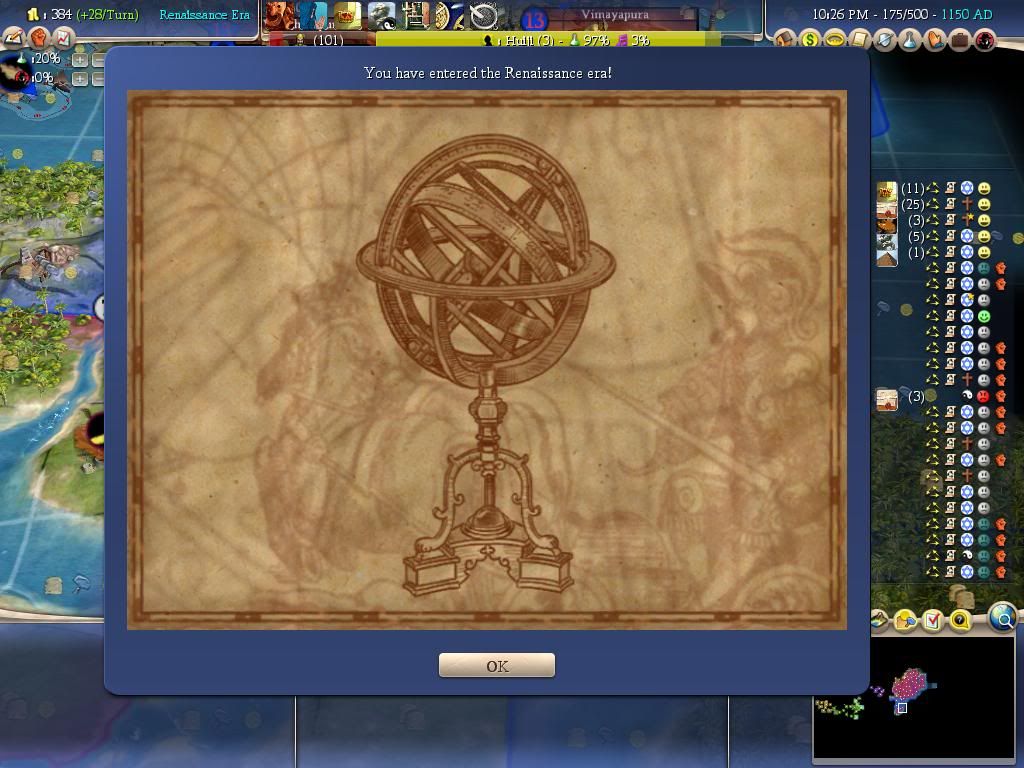
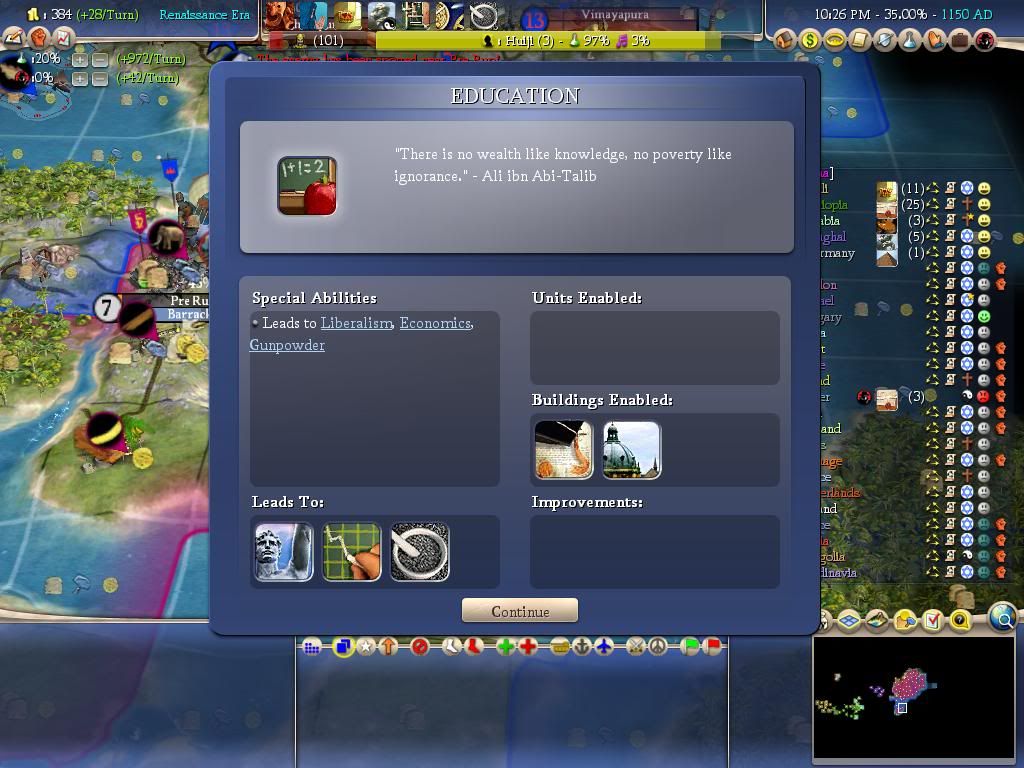
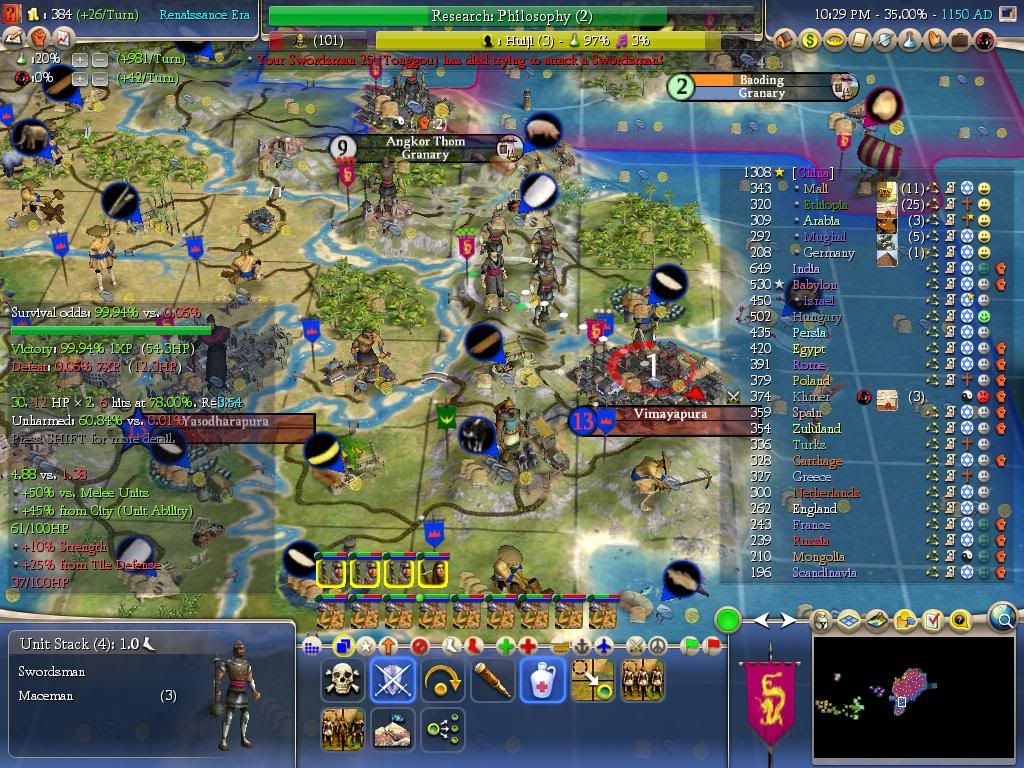
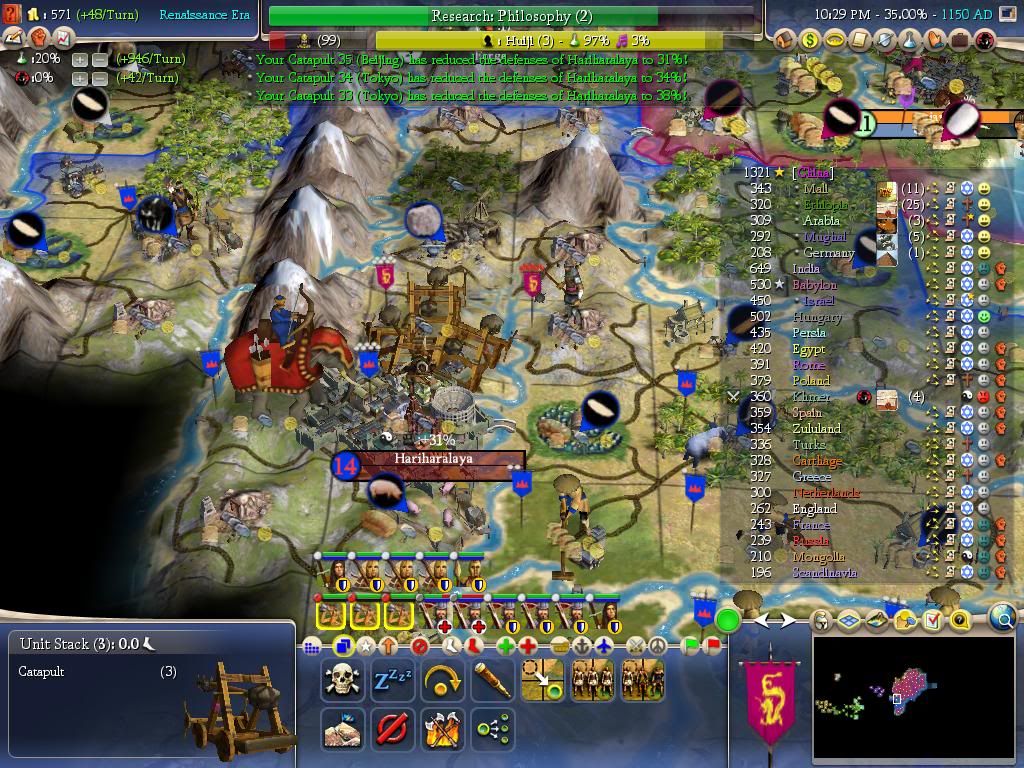
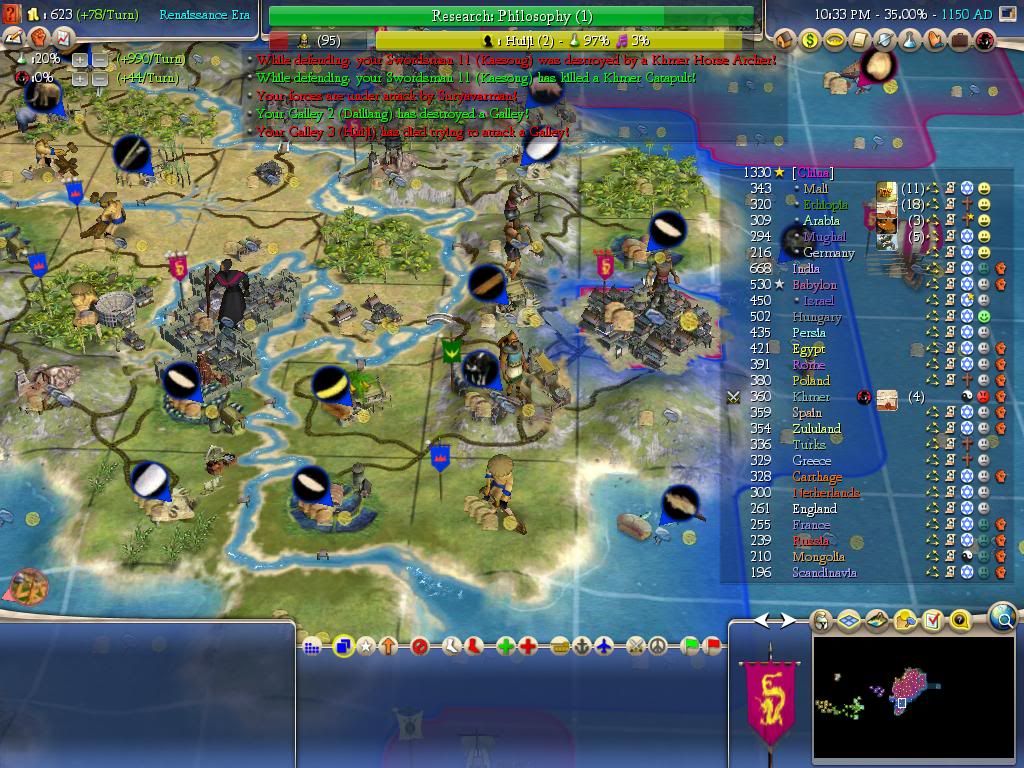
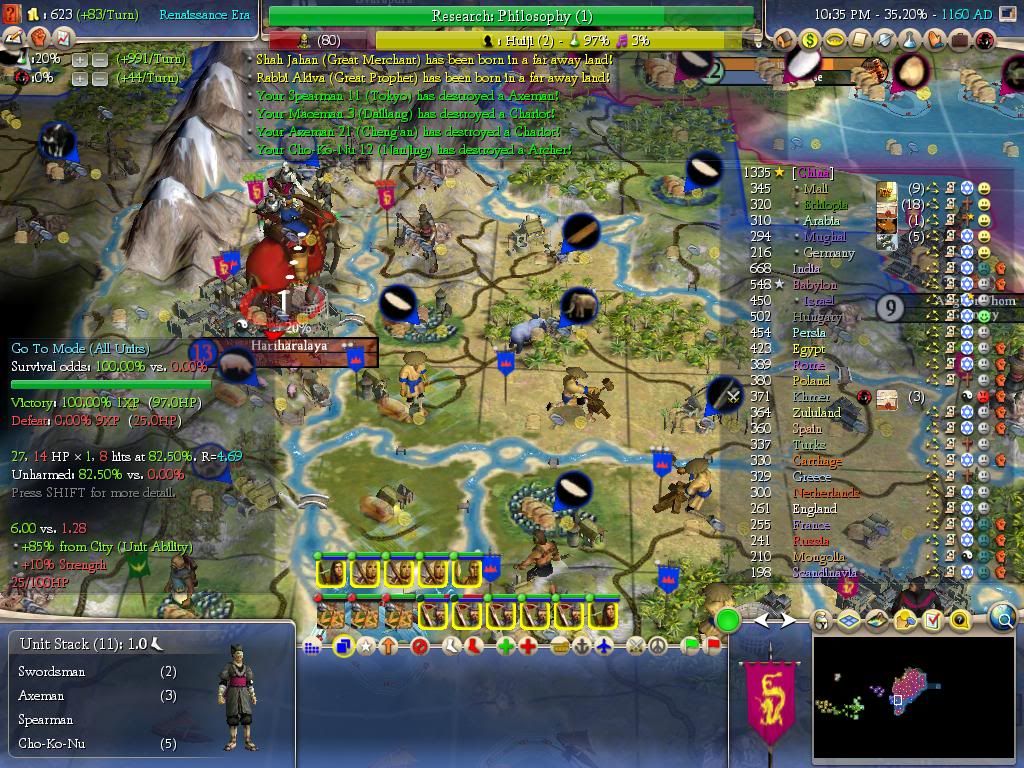
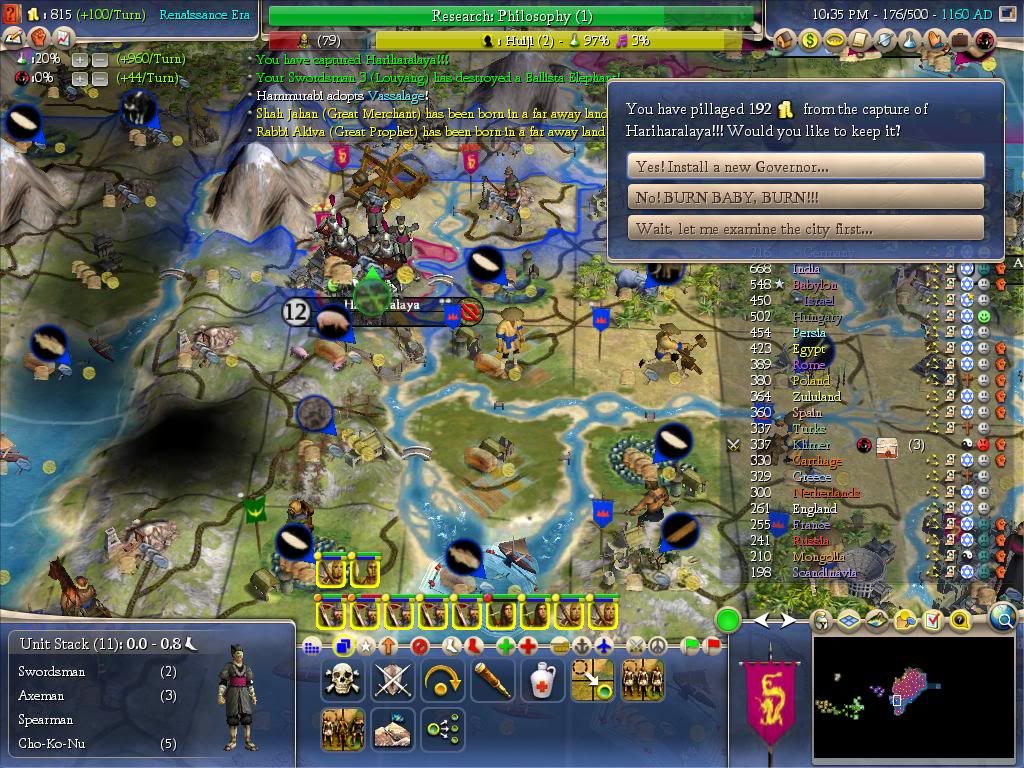
 Once again I find myself lost for words!
Once again I find myself lost for words!

 I'll definitely be having a look at whatever you put on deviantART.
I'll definitely be having a look at whatever you put on deviantART.
